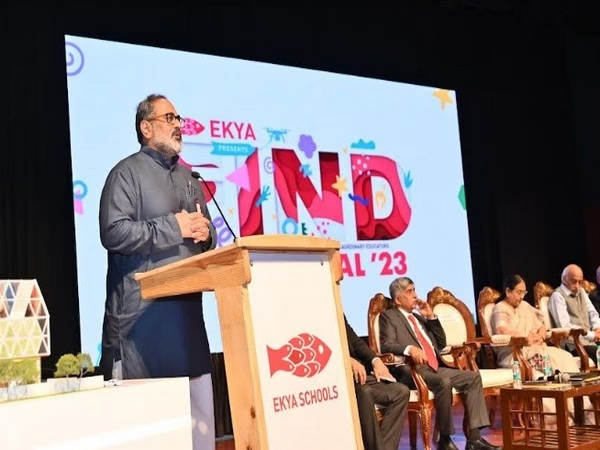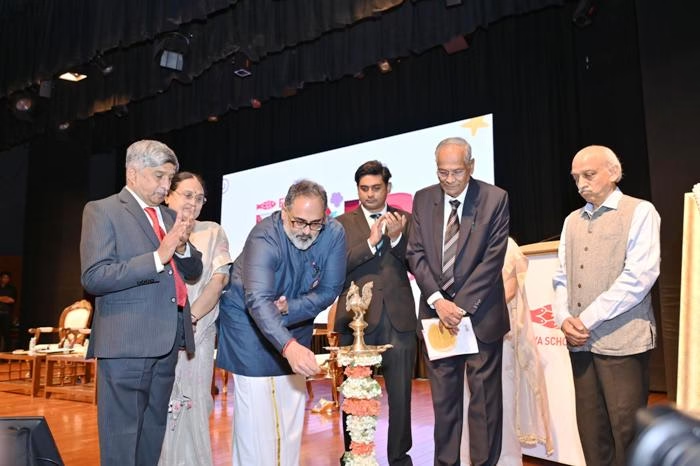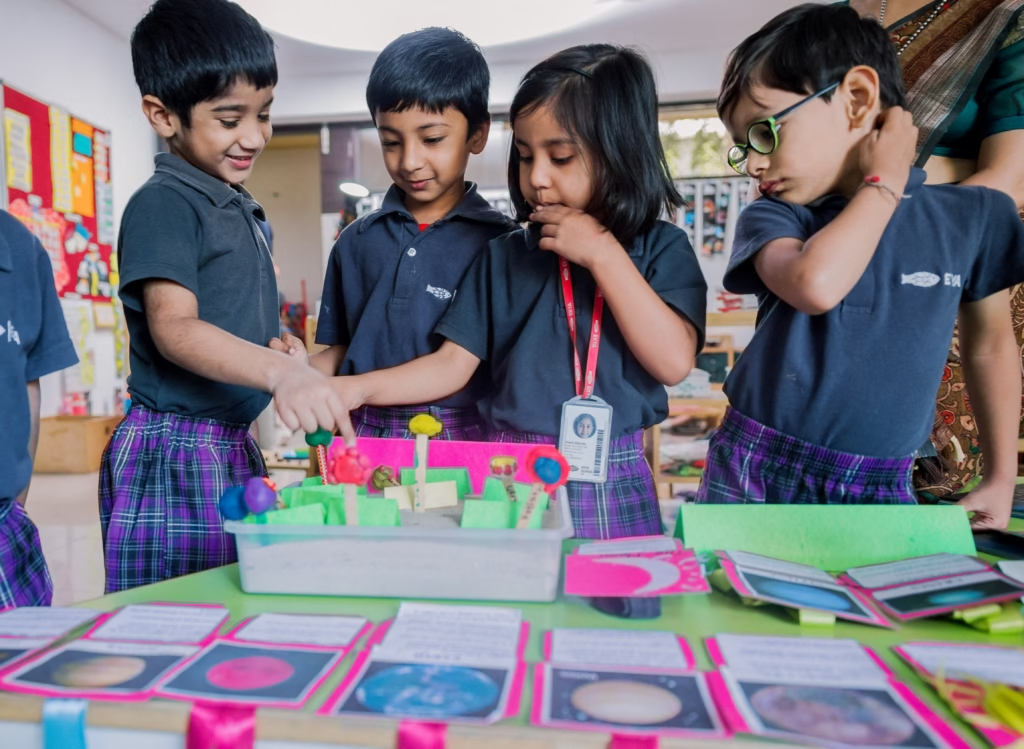Is Your Child Learning Why They Are Learning? What if the most important question in your child’s education isn’t what they’re learning, but why they’re learning it? Think about it—when children understand the purpose behind their education, their motivation skyrockets, their understanding deepens, and they begin to see how their lessons connect to their own goals and the world around them. Purpose is the invisible compass that guides children toward success, fulfillment, and meaningful contributions to society. Yet, in many schools, this crucial element is missing, leaving students to focus solely on grades or rote memorisation. At Ekya Nava, one of the leading IGCSE schools in Bangalore, we believe that education must go beyond academics. It should empower children to find their purpose, connect their learning to real-world challenges, and discover why their education truly matters. In this blog, we’ll dive into the concept of purpose-based learning, explore its transformative benefits, and show how schools in Bangalore can help your child thrive in an increasingly complex world. Is Your Child Learning Why They Are Learning? Purpose-based learning is an educational approach that helps students discover the why behind their lessons. Instead of focusing solely on academic outcomes, it emphasizes connection—between a child’s passions, their studies, and the world around them. When students see how their education impacts their lives and society, they become active participants in their learning journey. Purpose based learning as a tool to success Unlike traditional methods that prioritize grades and exams, purpose-based learning nurtures: Relevance: Students see how their lessons apply to real-world problems. Ownership: Children take charge of their education, motivated by personal goals. Holistic Development: It integrates emotional, intellectual, and social growth. This approach is increasingly embraced by international schools in Bangalore, as it prepares students for the demands of a globalized, fast-changing world. Why Purpose Matters in Education 1. Ignites Intrinsic Motivation Children thrive when they understand how their education aligns with their values and passions. Purpose-based learning inspires students to engage deeply with their studies because the lessons feel meaningful. For example, when students in IGCSE schools in Bangalore study sustainability, they’re not just learning abstract science concepts—they’re discovering how they can make a difference in their communities. 2. Develops Critical Thinking and Problem-Solving Skills Purpose-based learning challenges students to think beyond textbooks. It encourages them to apply their knowledge to solve real-world issues, fostering creativity and critical thinking. Whether it’s designing a project to tackle climate change or exploring how technology impacts society, students learn to approach problems with a solutions-oriented mindset—skills that are essential for the 21st century. Develops critical thinking and problem-solving skills 3. Builds Emotional and Social Intelligence Education isn’t just about academics—it’s about preparing children to navigate the complexities of life. Purpose-driven learning helps students develop empathy, collaboration, and resilience. By working on projects that connect to real-world challenges, students learn to communicate effectively, listen to diverse perspectives, and build meaningful relationships. 4. Prepares Students for the Future In an ever-changing world, technical knowledge alone isn’t enough. Employers and universities are looking for individuals who can adapt, innovate, and bring a sense of purpose to their work. Purpose-based learning equips students with these qualities, making them future-ready. Many schools in Bangalore offering purpose-driven education ensure their students are prepared for both academic and personal success. 5. Fosters a Lifelong Love for Learning When students understand the “why” behind their education, they develop a natural curiosity and a lifelong love for learning. Purpose-based learning shifts the focus from grades to growth, encouraging children to explore, experiment, and innovate. It’s a philosophy embraced by top international schools in Bangalore, where students are taught to think beyond exams and discover their potential. How Ekya Nava Champions Purpose-Based Learning At Ekya Nava, we’ve reimagined education by putting purpose at the center of everything we do. As one of the leading IGCSE schools in Bangalore, we believe that students learn best when they see the relevance of their education and feel empowered to make meaningful contributions to the world. Here’s how we bring purpose to life in our classrooms: Ekya Nava champions Purpose-Based Learning Personalised Journeys: Every child is unique, and we tailor education to their individual strengths, passions, and goals. Real-World Applications: By connecting lessons to real-world challenges, we ensure students see the value of their education. Collaborative Projects: Our students work in teams to develop empathy, teamwork, and communication skills. Reflection and Goal-Setting: We encourage students to reflect on their learning journey and set meaningful goals for themselves. At Ekya Nava, we don’t just teach students what to learn—we inspire them to discover why it matters. Your Role as a Parent: Supporting Purpose-Based Learning As a parent, you play an essential role in nurturing your child’s sense of purpose. Here’s how you can support purpose-based learning at home: Encourage Exploration: Let your child try new activities, hobbies, and experiences to discover their passions. Ask Reflective Questions: Help them think about how their studies connect to their goals and the world around them. Celebrate Growth Over Grades: Teach your child to value effort, curiosity, and in progress rather than just academic results. When parents and schools work together to foster purpose-driven learning, children thrive academically, emotionally, and socially. Purpose-Driven Learning for a Purpose-Filled Life Education is not just about memorising facts or acing exams—it’s about helping children find their purpose and use their knowledge to make a difference. Purpose-based learning transforms classrooms into spaces of inspiration, growth, and discovery, ensuring that students are prepared not just for academic success but for life itself. At Ekya Nava, one of the top international schools in Bangalore, we are committed to helping students discover their purpose and unlock their full potential. By choosing schools that prioritise purpose, you’re giving your child the tools they need to thrive in an ever-changing world. So, ask yourself: Is your child’s education preparing them for a career, or for a life filled with purpose? Let’s work together to create a future where every child learns not just





